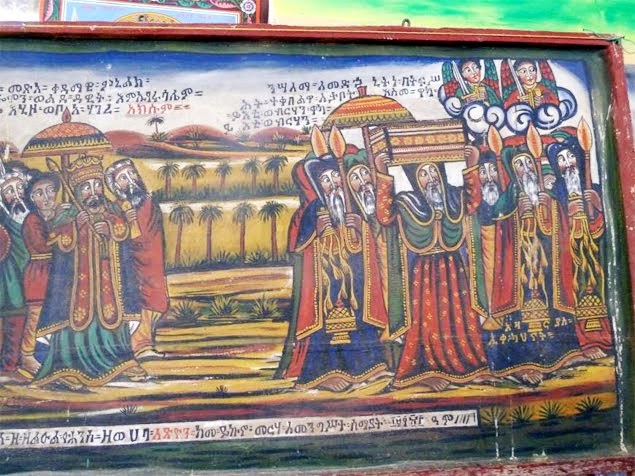The chief rabbi of Israel’s Ethiopian community, Yosef Hadane, welcomed on Tuesday the first-ever professional translation of the five books of the Torah, or Chumash, into Amharic.
The Chumash – which is being published by Koren Publishers and also includes the five megilot and the Book of Psalms, with simultaneous Hebrew and Amharic text and commentary – will have its formal launch Wednesday at a special event in Jerusalem.
“I am very happy about this initiative. There has been a real investment in this project and the translation, with the Hebrew opposite the Amharic, which will allow many Ethiopian Jews a chance to really understand the religious scriptures,” Hadane told The Jerusalem Post.
He said that previous translations of religious scriptures by Ethiopian Jews were problematic because they had been subject to interpretation and were changed through the translation.
Ethiopian Jews traditionally pray in the ancient Jewish language of Gez and most of the written words are in that language.
“I hope that every Ethiopian household will receive a copy of this new version of the Bible and that it will serve to strengthen the connection between the community and the rest of the Jewish people,” said the rabbi.
Hadane’s words were echoed Tuesday by Ethiopian-Jewish history expert Rabbi Menachem Waldman, director of the Shvut Am Institute and, more recently, religious studies teacher to Jews in Ethiopia who are preparing to immigrate.
Waldman told the Post that he had already distributed some 600 copies to members of the Jewish community in Ethiopia who are getting ready to make aliya – with the goal of making sure that every Ethiopian household in Israel has a copy as well.
“My goal throughout all 30 years of working with the Ethiopians [has been] to strengthen the role of the Jewish religion within the community and strengthen their place within the Jewish community,” said Waldman, who two years ago helped author an Amharic- Hebrew Passover Haggada and collaborated on the current Amharic Bible translation with Ethiopian author and scholar Zewdu Berhan.
He added: “I am constantly trying to make sure that they become part of us. The Jews have gone back to being one nation and there is nothing better to bridge the gap between all Jewish communities than the Torah – that is what connects all of Judaism.”
Waldman explained that the new Amharic-Hebrew Bible, which took more than three years to complete, is based in part on a 50-year-old translation of the Torah from Gez into the modern Ethiopian language. He said that the original scriptures used by Ethiopian rabbis and kessim [spiritual leaders] had first been translated from Greek into Gez.
“This Bible can be used in the synagogues and cultural centers of Ethiopian Jews – and because it is in Hebrew and Amharic, it can bridge the generation gap between younger and older members of the community,” commented Rabbi Yechiel Eckstein, founder and head of the International Fellowship of Christians and Jews. The organization has invested some NIS 100,000 in the Chumash by purchasing more than 1,000 copies to distribute to Ethiopian spiritual centers and synagogues countrywide.
“It is interesting that in one week we are seeing more and more steps being taken to recognize the history and the plight of the aliya of Ethiopian Jews,” said Eckstein, referring to the annual ceremony held Sunday to commemorate Ethiopian Jews who lost their lives on their way to Israel, which was attended for the first time ever by the prime minister.
Eckstein, whose organization will fund the formal launch of the Chumash at the Jerusalem Municipality on Wednesday evening, expressed regret however that neither Ashkenazi Chief Rabbi Yona Metzger nor Sephardi Chief Rabbi Shlomo Amar will be in attendance.
“I wish the rabbinate could have been part of this process because I see it as a watershed event,” said Eckstein, who has invited more than 20 Ethiopian religious and spiritual leaders to the launch. “It is a unifying experience for Israel when you have a Bible that can be read by everyone from the community.”
A rabbinate spokesman said Tuesday that no formal arrangements had been agreed upon for the chief rabbis’ participation.

No comments:
Post a Comment